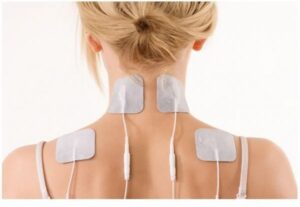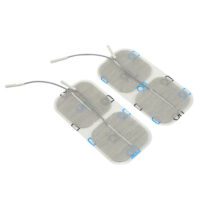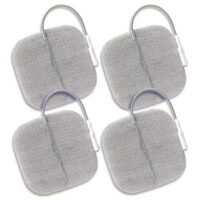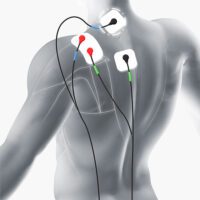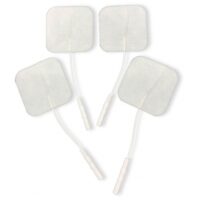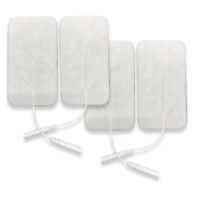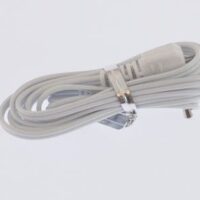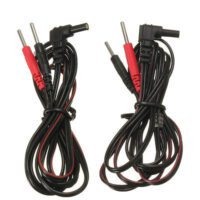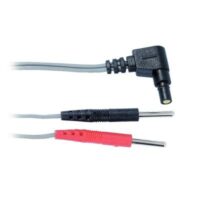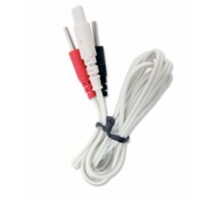TENS Machine
TENS Machines: A Physiotherapist’s Guide
What is a TENS Machine?
In Australia, TENS (Transcutaneous Electrical Nerve Stimulation) machines have grown in popularity as a non-invasive method of pain management. These devices send low-level electrical impulses through the skin to stimulate the nerves, reducing pain signals in the body. As physiotherapists, we often recommend TENS machines as part of a broader pain management plan, ensuring it aligns with your unique needs.
Why Use a TENS Machine?
TENS machines are particularly useful for those experiencing chronic or acute pain. By stimulating nerves, they help block pain signals or trigger the body’s natural painkillers, such as endorphins. The device can offer temporary relief from conditions like back pain, arthritis, or post-surgery discomfort. It is always best to discuss your symptoms with a physiotherapist to find the right approach.
Consider a Tens Machine for Pain Relief
How Do TENS Machines Work?
TENS machines operate using two methods:
- Sensory Level Stimulation: According to the Gate Control Theory, the machine disrupts pain signals by interfering with neural pathways, effectively blocking the brain from receiving pain signals.
- Motor Level Stimulation: This mode stimulates the body to release natural painkillers, providing deeper relief similar to opiates but without side effects.
What Problems Can a TENS Machine Help Solve?
TENS machines are often used for managing musculoskeletal pain, such as lower back pain, neck pain, and arthritis. They are also effective for nerve-related pain like sciatica. However, they may not work for everyone, and it’s important to be aware of the underlying condition causing the pain before use.
Read more: Back Pain Treatment | Arthritis Treatment | Nerve Pain Treatment
Safety Considerations for TENS Machines
While TENS machines are generally safe, there are a few important considerations:
- Avoid certain areas: Never place electrodes on the eyes, brain, front of the neck, or near the heart. Those with cardiac devices must take extra precautions.
- Skin safety: Avoid placing electrodes on wounds or irritated skin.
- Consultation is key: Always seek professional advice if you have underlying medical conditions or concerns about its use.
Investigating TENS vs EMS
There’s often confusion between TENS and EMS (Electrical Muscle Stimulation) machines. TENS machines focus on pain relief, while EMS devices stimulate muscle contractions. Make sure to consult a physiotherapist if you’re unsure which is appropriate for your needs.
Read more: TENS vs EMS
Latest Research
A systematic review and meta-analysis of 381 randomised controlled trials found that transcutaneous electrical nerve stimulation (TENS) significantly reduces pain intensity in adults. Compared to placebo, TENS showed moderate-certainty evidence of lowering pain levels, with reductions also observed when compared to other pharmacological and non-pharmacological treatments.
Adverse events related to TENS were generally mild and similar to other treatments. Overall, TENS provides effective pain relief without serious side effects, making it a safe option for managing both acute and chronic pain (Johnson et al., 2022).
What to Do?
If you are considering using a TENS machine for pain relief, your physiotherapist can guide you through the process. We recommend booking a consultation to ensure that TENS therapy is right for you and to receive tailored advice on correct electrode placement and machine settings. Remember, TENS therapy works best when integrated into a broader pain management plan.
IMPORTANT
A TENS machine differs from an EMS (Electrical Muscle Stimulation) machine, though both are electronic medical devices. Always read the instructions and labels carefully. A TENS machine may offer temporary pain relief, but always consult with a healthcare professional before use, especially if pain persists. Follow the directions provided by the manufacturer and your healthcare provider.
TENS Machine FAQs
- What is a TENS machine used for?
A TENS machine is primarily used for pain relief, particularly for conditions like arthritis, back pain, sciatica, and postoperative pain. - How does a TENS machine relieve pain?
It sends low-level electrical impulses through the skin to block pain signals from reaching the brain and stimulates the release of endorphins, the body’s natural painkillers. - Is a TENS machine safe to use?
Yes, TENS machines are generally safe when used correctly. However, it’s important to avoid placing electrodes on sensitive areas like the eyes, brain, heart, or over broken skin. - Can I use a TENS machine if I have a pacemaker?
No, if you have a pacemaker or any other electrical device in your body, it’s not safe to use a TENS machine without consulting your doctor. - Where should I place the electrodes?
Electrodes should be placed on or near the painful area. For example, for back pain, place them on either side of the spine at the pain location. Consult a physiotherapist for precise placement. Read more:- TENS Machine Electrode Placement Guide – Pain Relief eBook – This guide could offer readers in-depth information on the best practices for electrode placements to maximise the effectiveness of TENS therapy.
- How long should I use a TENS machine for?
TENS sessions typically last 20 to 30 minutes. It’s important to follow your physiotherapist’s recommendation to avoid overuse, which could lead to skin irritation. - Can I use a TENS machine while pregnant?
It’s best to avoid using a TENS machine during pregnancy unless specifically advised by a healthcare professional, especially in the first trimester. - Can a TENS machine be used for muscle building?
No, TENS machines are for pain relief. EMS (Electrical Muscle Stimulation) devices are designed to stimulate muscles. - How often can I use a TENS machine?
You can use a TENS machine multiple times a day, but it’s best to follow your physiotherapist’s advice to avoid skin irritation or decreased effectiveness over time. - Will a TENS machine cure my pain condition?
A TENS machine offers temporary relief from pain but does not cure the underlying condition. It should be used as part of a comprehensive treatment plan. - Can I claim a TENS machine under private health insurance in Australia?
Yes, many private health insurance policies in Australia offer rebates for TENS machines if they are prescribed by a physiotherapist or healthcare provider. The level of cover depends on your policy and extras. It’s best to check with your insurer to confirm your eligibility for a rebate. Read more: Private Health Insurance Rebates for TENS Machines
Related Articles
- TENS Machines: What You Need to Know
Discover the ins and outs of using TENS machines for effective pain management. - Back Pain Treatment Options
Learn about the most effective ways to manage and treat back pain. - Arthritis Pain Management
Explore strategies for managing arthritis pain using physiotherapy and technology. - Nerve Pain Treatment Options
Understand how physiotherapy can help alleviate nerve-related pain. - Sciatica Relief: What Works?
Find out what treatments are most effective for sciatica and nerve pain. - How Physiotherapy Can Help With Chronic Pain
See how a comprehensive approach to pain can offer lasting relief. - Electrical Stimulation in Physiotherapy
Learn how electrical therapy can complement your pain management plan. - Knee Pain: Causes and Solutions
Discover the common causes of knee pain and the best treatment options. - Physiotherapy for Neck Pain Relief
Get advice on managing neck pain with physiotherapy. - Musculoskeletal Physiotherapy: What to Expect
Find out how physiotherapy can help treat musculoskeletal injuries. - Transcutaneous Electrical Nerve Stimulation for Pain Control
This article explains how TENS works and when it’s most effective. - The Science Behind TENS Machines
Learn about the scientific principles that make TENS machines a valuable tool in pain management. - A Comprehensive Guide to Using TENS Machines – Mayo Clinic
Find detailed guidance on how to use TENS machines for various conditions.

